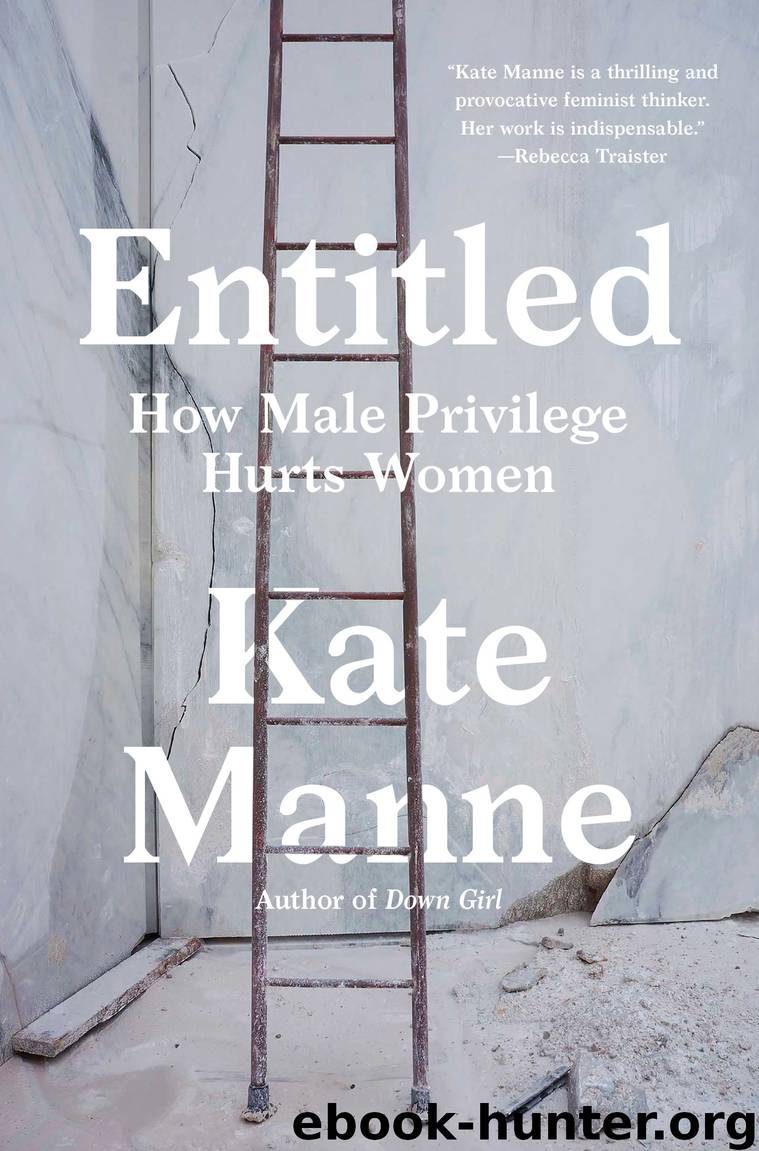Entitled by Kate Manne

Author:Kate Manne
Language: eng
Format: epub
Publisher: Crown
Published: 2020-08-10T16:00:00+00:00
Black women are not just dismissed, then; they are not heeded in the first place by many of those overly endowed with epistemic privilege.
* * *
—
As we’ve seen, a sense of epistemic entitlement can be maintained blithely, with utmost (unearned) confidence. It can also be jealously guarded and defended—sometimes to the point of engaging in creepy, controlling, and even abusive behavior. One of the darkest manifestations of epistemic entitlement in this vein is gaslighting.
“Gaslighting” takes its name from the 1938 Patrick Hamilton play Angel Street, which was performed onstage as Gas Light.13 The play was heavily adapted into two different movies by the latter name—a British and an American version—both of which have become better known than the original. But the play is to my mind richer than either film, and so forms the basis of the discussion here.
In Gas Light (as I’ll refer to it), Jack Manningham appears to be intent on driving his wife, Bella, insane. His original motives for doing so become apparent only during the play’s second act, but—importantly—his behavior is intelligible right from the beginning, lending the play its claustrophobic, indeed suffocating, atmosphere. Act One is a vivid depiction of domestic terror. Mr. Manningham wrong-foots and undermines his wife at every turn—humiliating her in front of their servants, correcting her constantly, and even impugning the anxiety he is thereby instilling in her as irrational and baseless. (Mr. Manningham: “Why are you so apprehensive, Bella? I was not about to reproach you.” Mrs. Manningham: [Nervously…] “No, dear. I know you weren’t.”14 He goes on to reproach, indeed berate, her shortly thereafter.)
In a particularly cruel, long-running series of manipulations, Mr. Manningham leads his wife to believe that she is going out of her mind, and losing possession of her rational faculties, by regularly hiding their belongings and then holding her responsible for their disappearance. And he holds her responsible not merely causally, but morally: depicting her as mischievous and wicked, as well as confused and delusional. (He also accuses her—most painfully of all—of deliberately hurting their pet dog, thus painting her as the cruel and abusive one.) This combination of accusations is of course incoherent, as Bella Manningham tries repeatedly to point out to her husband. If she really is confused and delusional, and cannot help her behavior, then surely he ought to treat her kindly and try to help her, rather than getting angry.15 But Mr. Manningham ignores this, as he does all of his wife’s attempts to prevail upon his goodwill. She is truly powerless, utterly subject to her husband’s control, within their household. And she is nobody outside of it, since her husband has deliberately isolated her from all of her friends and relatives.16 She hence has no choice but to defer to him—and, even then, it does little to appease his seething temper.
The effect of Mr. Manningham’s behavior—a devastating portrait of a recognizable pattern of abuse that subsequently became known as gaslighting, for reasons that will emerge shortly—is to deprive Bella of her own sense of entitlement to state even the most basic realities.
Download
This site does not store any files on its server. We only index and link to content provided by other sites. Please contact the content providers to delete copyright contents if any and email us, we'll remove relevant links or contents immediately.
Cecilia; Or, Memoirs of an Heiress — Volume 1 by Fanny Burney(31322)
Cecilia; Or, Memoirs of an Heiress — Volume 3 by Fanny Burney(30928)
Cecilia; Or, Memoirs of an Heiress — Volume 2 by Fanny Burney(30885)
The Great Music City by Andrea Baker(21166)
We're Going to Need More Wine by Gabrielle Union(18064)
Bombshells: Glamour Girls of a Lifetime by Sullivan Steve(13100)
Pimp by Iceberg Slim(12922)
All the Missing Girls by Megan Miranda(12739)
Fifty Shades Freed by E L James(12443)
Norse Mythology by Gaiman Neil(11873)
Talking to Strangers by Malcolm Gladwell(11861)
Crazy Rich Asians by Kevin Kwan(8340)
Mindhunter: Inside the FBI's Elite Serial Crime Unit by John E. Douglas & Mark Olshaker(7827)
The Lost Art of Listening by Michael P. Nichols(6462)
Enlightenment Now: The Case for Reason, Science, Humanism, and Progress by Steven Pinker(6402)
Bad Blood by John Carreyrou(5761)
The Four Agreements by Don Miguel Ruiz(5502)
Weapons of Math Destruction by Cathy O'Neil(5029)
We Need to Talk by Celeste Headlee(4861)
